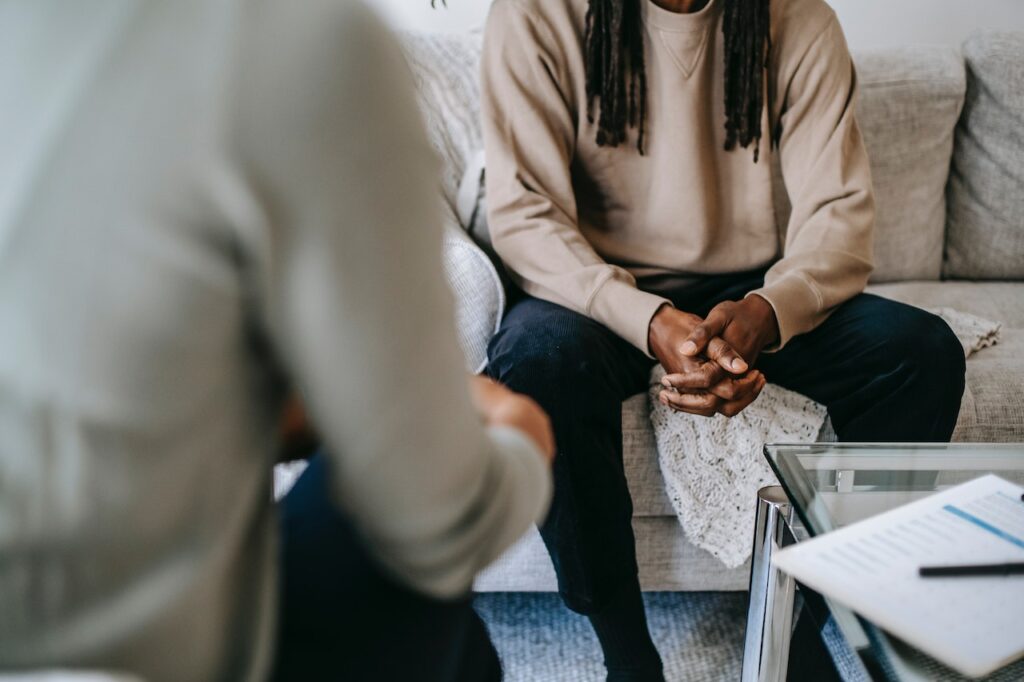Individual therapy is a crucial component of addiction and mental health treatment for individuals with co-occurring disorders, particularly those who use substances to cope with past trauma. However, many people may not be aware of what individual therapy entails, how it can help, and what methodologies are used to facilitate healing.
In this post, we will explore what individual therapy looks like for individuals with co-occurring disorders and trauma-related substance use. We will examine three main types of therapies: Cognitive-Behavioral Therapy (CBT), Dialectical Behavior Therapy (DBT), and Eye Movement Desensitization and Reprocessing (EMDR). By the end of this post, you will have a better understanding of what to expect during individual therapy for co-occurring disorders and trauma-related substance use.

CBT for Co-Occurring Disorders and Trauma-Related Substance Use
Individual therapy using CBT is a highly effective therapeutic approach that aims to identify and challenge negative thoughts, beliefs, and behaviors related to trauma and substance use. During CBT sessions, individuals work with a therapist to develop coping strategies and skills for managing triggers and negative emotions. As a result, individuals learn to cope with trauma-related symptoms without resorting to substance use. Research has shown that CBT can help individuals with co-occurring disorders to:
- Understand the connection between trauma, substance use, and their thoughts and emotions.
- Develop effective coping strategies to manage triggers and cravings.
- Address distorted thinking patterns and replace them with healthier alternatives.
- Improve problem-solving and decision-making abilities to prevent relapse.
- Enhance self-esteem and self-worth through building positive beliefs about oneself.
DBT for Co-Occurring Disorders and Trauma-Related Substance Use
It is a specialized therapy that combines elements of CBT with mindfulness and acceptance-based strategies. DBT for co-occurring disorders and trauma-related substance use can help individuals:
- Learn mindfulness techniques to increase awareness of emotions, thoughts, and physical sensations.
- Develop skills for emotion regulation, distress tolerance, and interpersonal effectiveness.
- Enhance their ability to manage intense emotions without resorting to substance use.
- Cultivate a sense of self-acceptance and validation, reducing self-destructive behaviors.
- Improve communication and relationship skills to foster healthier connections.
EMDR for Trauma-Related Substance Use
EMDR is a targeted and evidence-based therapy that involves a structured approach for processing traumatic memories and associated beliefs and emotions. In EMDR sessions, individuals engage in guided eye movements or other forms of bilateral stimulation while recalling traumatic experiences. As a result, individuals can process and desensitize the trauma while reducing the associated symptoms, such as substance use to cope with distress. EMDR for trauma-related substance use can help individuals:
- Transform maladaptive beliefs and negative associations related to trauma and substance use.
- Foster adaptive coping mechanisms and increase resilience.
- Address the underlying causes of substance use and trauma-related distress.
- Improve self-esteem and self-worth through the resolution of past trauma.
- Develop strategies to manage triggers and reduce substance use as a form of self-medication for trauma-related distress.
Conclusion
Individual therapy for co-occurring disorders and trauma-related substance use requires a comprehensive and integrated approach. It involves fostering a safe and supportive environment where individuals can share their experiences, process emotions, and develop insight while learning new skills for managing symptoms and promoting healing.
CBT, DBT, and EMDR are three evidence-based therapeutic modalities that can help individuals with co-occurring disorders and trauma-related substance use to address the underlying causes of their distress and reduce the associated symptoms, such as substance use. Remember, individual therapy is a journey that requires patience, commitment, and professional support. By seeking treatment, you are taking an essential step towards healing and well-being. Contact us at Roots Through Recovery to get help.



